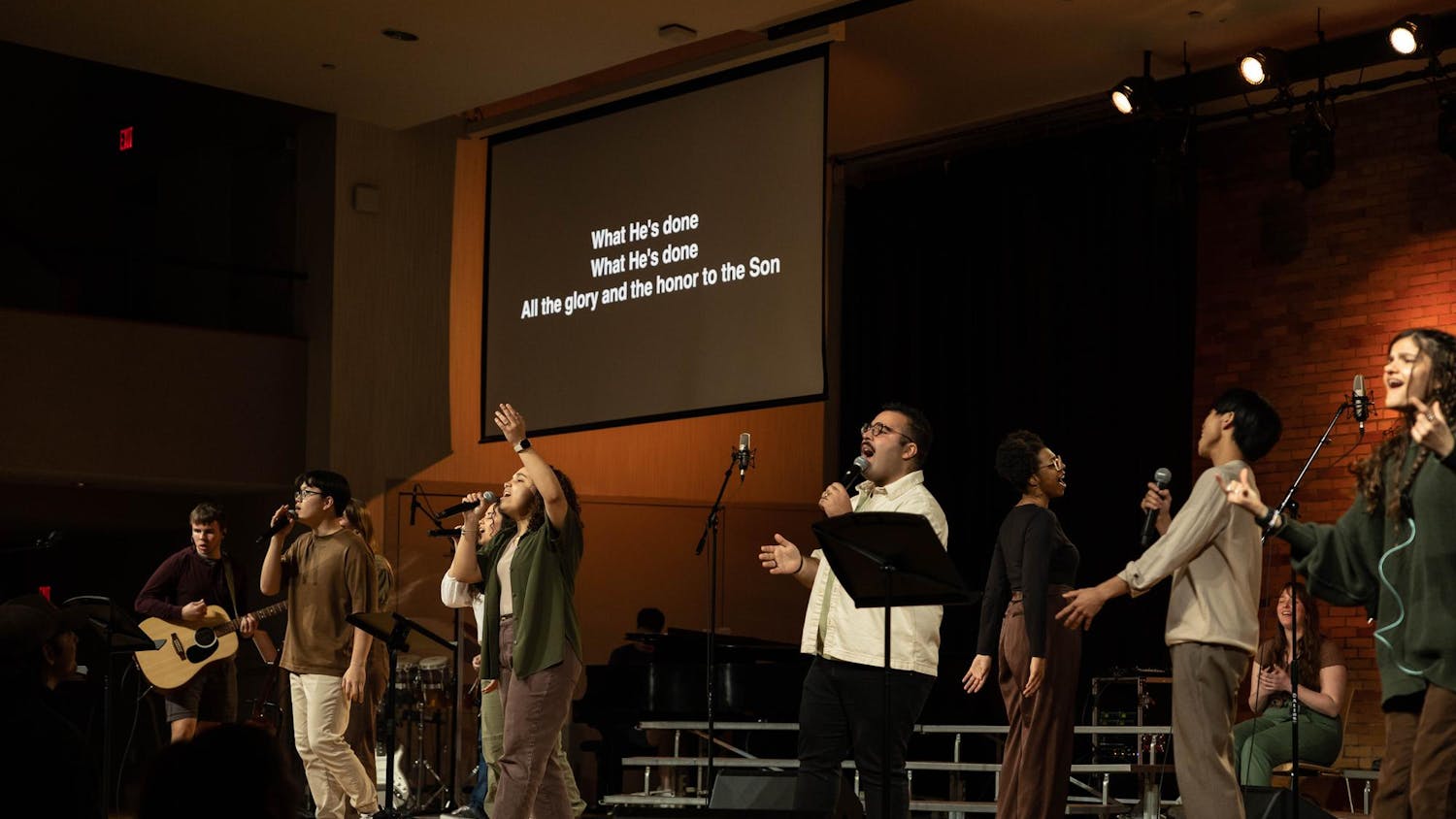By Melissa Schleicher | Contributor
Do you dread the first 15 minutes of a worship service? You groan (low enough that no one hears) as that one song you can't stand begins-again-and you're forced to sing through 10 repeats.
That's every worship service for me. Most of my frustration with modern worship music comes from the songs themselves or the ways they are performed.
I consider the lyrics of worship songs to be theology. They teach and reinforce the tenets of our faith. Think about it: you can probably call up the lyrics of your favorite worship song quicker than any sermon. Therefore, poorly written songs can have serious consequences.
Sometimes lyrics are downright unbiblical. For example, the sneaky addition of "my" in this Romans 8:28 reference: "You make all things work together for my good." God works for his good, not necessarily for what we think of as good. This problem is all too common.
And of course, each verse and chorus gets sung several times.Ever notice how words lose their meaning if you repeat them? Excessive repetition can take a phrase from the Bible and completely strip it of power. And if the lyrics are unbiblical, it's not only annoying; it's spiritual brainwashing.
Another problem is an overly optimistic focus. How can I sing about being completely satisfied and lost in God's love when I'm truly broken, angry or struggling to believe at all? We need to have songs that speak to that too-the Psalms did. If our songs allowed us to be honest about our brokenness, we might be encouraged to open up to others and empowered toward change.
Similarly, why focus on only the love of a God who is also powerful, just, holy and much more? This overemphasis on love portrays a single side of an infinite God.
Finally, worship songs are often self-centered. Why am I singing all about me? Is God only there to cater to my desires like an all-powerful Alfred?
Even when a worship song is well written, the performance can ruin the spiritual experience. I consider the purpose of corporate worship to be unity. If the performance detracts from unity, it should be altered.
One of the most amazing things about congregational singing is being able to hear all the voices joining as one. Deafening music results in isolation instead of togetherness.
Additionally, leaders often choose keys that fit their voices-and their voices only. Nobody else is able to sing comfortably, so they resort to singing uncomfortably, attempting harmonies that may not work or stopping singing entirely.
Revamped classics also detract from unity. Through an attempt to make older songs "more accessible" to the modern generation, what usually happens is that people get confused by the difference. Everyone would be more edified by singing the song as is-not to mention that sometimes the changes made actually go against the the original meaning of the song.
Lastly, some songs are not meant for congregational singing. Due to their range, rhythm or melody, some songs are better suited for soloists. The purpose of leading worship is not to be a rock star-it is to serve. Musicians help the congregation stay together and learn the melodies. So when musicians improvise or go off on riffs, it distracts from the words and confuses the congregation. I'm not there for a show; I'm there for Jesus.
Musical worship should connect us to our spiritual family, lift up heavy hearts and teach us about God. But more often than not, services do not allow for any of this. The good news is that many solutions to these problems are simple and can be implemented immediately. Some are more difficult and will require more time. However, as we grow in Christ, I believe we can learn to be makers of theologically sound music as we work toward unity with one another-even in our music.





